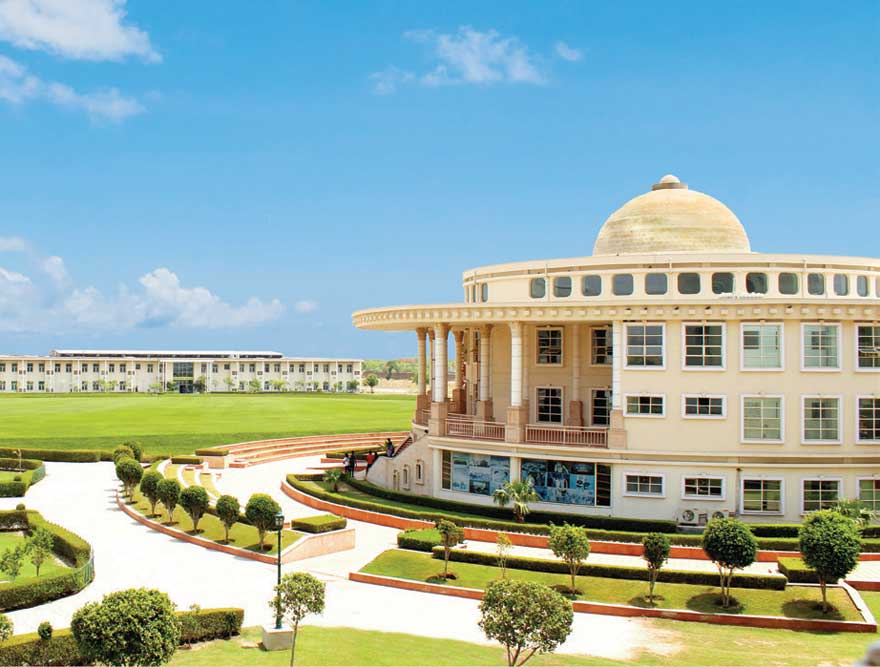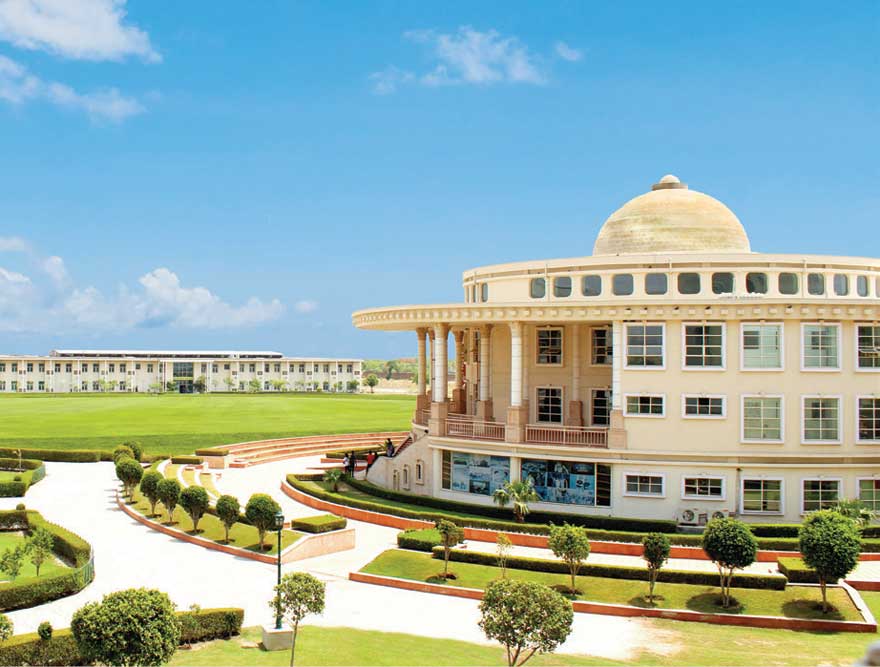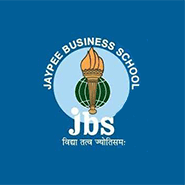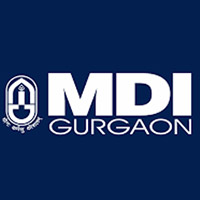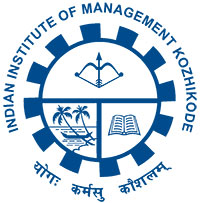CHOICE BASED CREDIT SYSTEM
The CBCS provides an opportunity for the students to choose from the prescribed courses comprising
core, elective/minor or skill based courses. The courses can be evaluated following the grading system,
which is considered to be better than the conventional marks system. Therefore, it is necessary to
introduce uniform grading system in the entire higher education in India. This will benefit the students to
move across institutions within India to begin with and across countries. The uniform grading system will
also enable potential employers in assessing performance of the candidates. In order to bring uniformity
in evaluation system and computation of the Cumulative Grade Point.
Average (CGPA) based on student’s performance in examinations, the UGC has formulated the
guidelines to be followed.
Outline of Choice Based Credit System
1. Core Course: A course, which should compulsorily be studied by a candidate as a core
requirement is termed as a core course. The structure of course is defined under following points-
1.1. All the UG degree programs shall be of either six semesters or eight semesters duration unless
specified otherwise.
1.2. An academic year consists of two semesters: Odd Semester and Even Semester.
1.3. A semester normally extends over a period of 16 weeks (6 day week) with 90 working days.
1.4. Every course offered may have three components: Lecture (L), Tutorial (T) and Practicals
(P). Tutorial session consists of participatory discussion / self-study/ desk work/ brief
seminar presentations by students and such other novel methods.
1.5. The credit pattern for a course (L:T:P) shall be decided by the respective Board of Studies
(BoS).
1.6. Credit means the unit by which the course work is measured. One hour session of Lecture or
Tutorial per week for 16 weeks amounts to 1 credit.
1.7. Two hour session of Practicals per week for 16 weeks amounts to 1 credit per semester. The
total duration of a semester is 20 weeks inclusive of semester-end examination.
1.8. A course of 3 to 6 credits will be evaluated for 100 marks. A course with less than 3 credits
will be evaluated for 50 marks. For any other approved course, the evaluation method shall
be decided by the respective BoS.
2. Elective Course:
Elective Course is a course which can be chosen from a pool of courses. It may be very
specific or specialized or advanced or supportive to the discipline/ subject of study or which
provides an extended scope or which enables an exposure to some other
discipline/subject/domain or nurtures the student’s proficiency/skill.
2.1. Discipline Specific Elective (DSE) is a course offered under the main discipline/subject of
study or a Project/Dissertation.
2.2. Project/Dissertation is an elective course designed to acquire special/ advanced knowledge,
such as supplement study/ support study to a project work. A student has to study such a
course on his/her own with advisory support of a faculty member.
2.3. Generic Elective (GE) is an elective course chosen from an unrelated discipline/subject with
an intention to seek exposure beyond discipline/subject.
3. Ability Enhancement Courses (AEC): Ability Enhancement Courses may be of two types:
Ability Enhancement Compulsory Courses (AECC) and Skill Enhancement Courses (SEC).
3.1. AECC courses are mandatory courses based upon the content that leads to knowledge
enhancement viz., Environmental Science, Indian Constitution and English/ Modern Indian
Languages (MIL) / Communication skills.
3.2. SEC courses are aimed at providing hands-on-training, competencies, skills, etc.
PEOs, POs and PSOs of Master of Business Administration Programme
Programme Educational Objectives (PEOs):
PEO1: To develop in our students’ competencies to pursue higher education and research in reputed
institutes and industry at local and global level.
PEO2: To update, strengthen and deepen students’ knowledge using a flexible research-intensive programme
in concord to academia and industry requirements.
PEO3: To development a application based knowledge of Business management in all aspect of a business.
PEO4: To enable critical thinking and full-fledged grasp of essential aspects of Business management and
admiration.
Programme Outcomes (POs):
PO1: To Apply knowledge of management theories and practices to solve business problems.
PO2: To Foster Analytical and critical thinking abilities for data-based decision making.
PO3: To cultivate ability to understand, analyze and communicate global, economic, legal, and
ethical aspects of business.
PO4: To upgrade skill sets of recipients and ensure their employability
Programme specific outcomes (PSOs)
PSO1: Students, will be equipped to understand the fundamental aspects of Business Management and
administration.
PSO2: Undergraduate students will be able to demonstrate and understand the principles of business
management in the design, application, analysis and research.
PSO3: Empower the students to acquire technological knowledge by connecting the theory and
applications of management concepts.
PSO4: Detailed experience would enable them to begin a career in industry that engages in Business
management, corporate application and business research and analytics.
PSO5: Students, will be able to recognise the importance of fundamental management concepts and its
application in the real business world. Concepts of organisation behaviour and business communication
are also taught.
PSO6: To impart in-depth practical oriented knowledge to students in various thrust areas of business
management, so as to meet the demands of industry, corporate and academia
MBA - ELITE Total fee for non sponsored - 1,33,750/-
MBA - DUAL SPECIALIZATION Total fee for non sponsored - 80,000/- Total fee for sponsored - 90,000/-
MBA - Hospital & Health Management Total fee for non sponsored - 95,000/- Total fee for sponsored - 1,05,000/-
